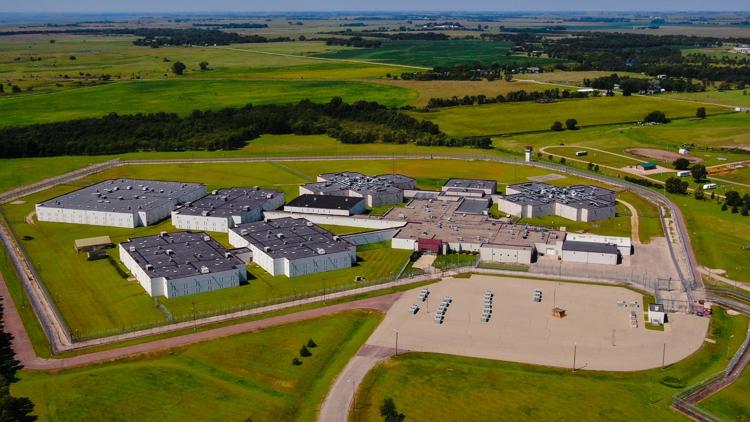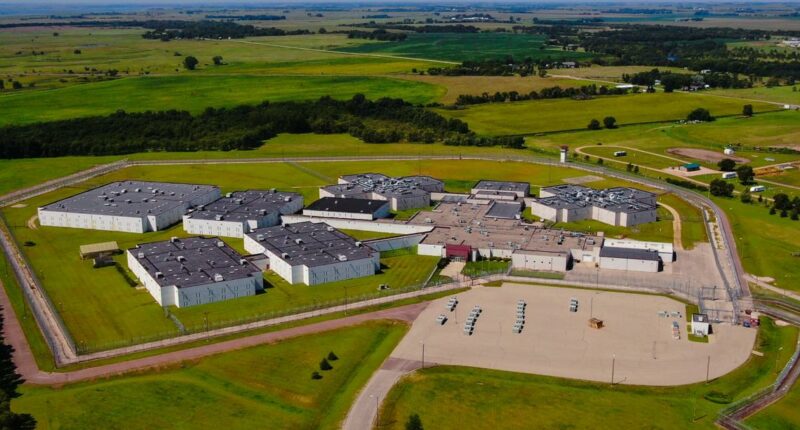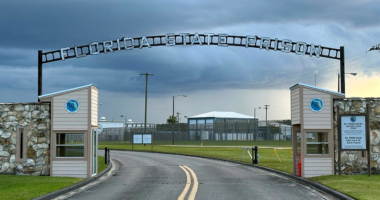Share this @internewscast.com

The Prairie Correctional Facility in Appleton closed in 2010 and can house 1,600 people.
APPLETON, Minn — Newly released documents from the Trump Administration reveal its intention to establish additional immigrant detention centers by the year’s end.
One potential site is the Prairie Correctional Facility in Appleton, Minnesota, which has been closed for some time and is the only private prison in the state. Appleton is situated around 150 miles west of Minneapolis.
It’s owner, CoreCivic, says some staff remain on site and help maintain the building that can house about 1,600 people.
A CoreCivic spokesperson said in a statement to KARE 11 on Thursday, “We continue to explore opportunities with our government partners for which this site could be a viable solution.”
The facility closed in 2010, but according to lifelong resident, Edward Massee, he’s skeptical it may ever reopen.
“The more recent news is probably the best traction that we’ve seen or heard,” said Massee, who’s also the town banker.
He admits the prison’s closure was a detriment to the community and supports its reopening to revive the local economy.
“It shuts down your housing market, the grocery store, on down the line,” said Massee. “The ripple effect was felt tremendously.”
Washington Post reporter Doug MacMillan confirmed Trump’s plan this week, stating that the administration aims to double the bed capacity from 50,000 to 100,000, considering facilities in Minnesota, North Carolina, Tennessee, Oklahoma, and Indiana.
“Rather than having to relocate people frequently across the country, they seem to prefer setting up more nearby detention centers to facilitate an increase in interior arrests in the Minnesota area and to have a place to detain them while awaiting deportation,” MacMillan explained.
According to MacMillan, Congress has recently sanctioned $45 billion for detention centers over the next five years, marking an amount greater than the allocation by the previous three administrations combined.
“Looking at that kind of slice of spending tells you a lot about how serious they are about their plans and how much support they have in Washington,” said MacMillan.
Since the Prairie Correctional Facility closed, the state legislature banned operating private prisons, but there’s no federal law against that.
Appleton City Administrator John Olinger says right now, the city is not in talks with CoreCivic or ICE. In a statement, Olinger writes, “We have also heard the rumors and confirmed with our contact at CoreCivic that they do not have a contract with ICE, but are pursuing a contract.”
Swift County also confirms it has not been contacted by CoreCivic or ICE.
County Commissioner Gary Hendrickx says he looks at detention centers with “concern”, writing in a statement, “On one hand the jobs and economic stimulus would benefit the region. On the other hand treatment of detainees creates a polarization effect in our society. My goal is that all detainees are treated with dignity and respect.”
Appleton Mayor Justin Koepp told KARE 11 reporter Jennifer Hoff, “We wish it would open,” when referring to the prison. He said it would generate up to 500 jobs as far away as Willmar and Aberdeen.
MacMillan says that housing inmates can cost, on average, $150 a night, per person. Depending on their size, facilities are generating tens of millions of dollars a year. CoreCivic and The GEO Group are two of the biggest corporations that invest in prisons.
MacMillan’s reporting found that, together, they are expected to double their annual income to $2 billion a year under Trump’s new plan.
“I don’t disagree with it, one way or the other, why the people are here, it’s just more of a benefit to Appleton to help these jobs and help a struggling community,” said Massee about the detainees that could be housed in the city. “The community banker in me cares about the community and wants what’s best for the community.”

















